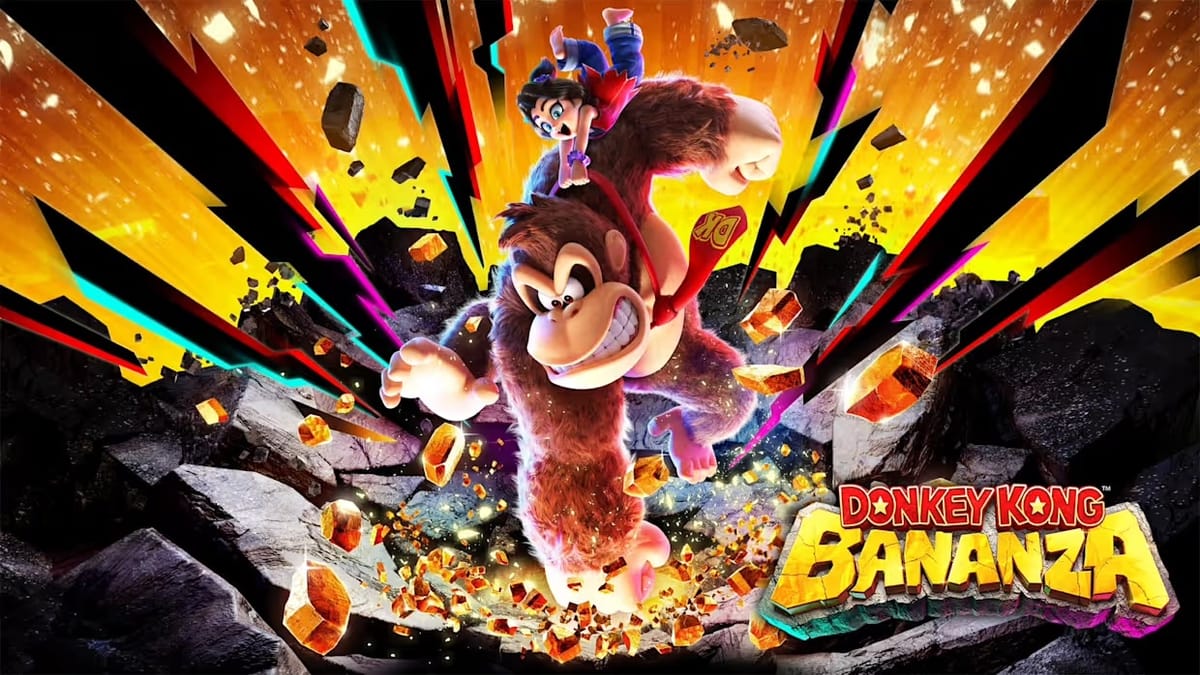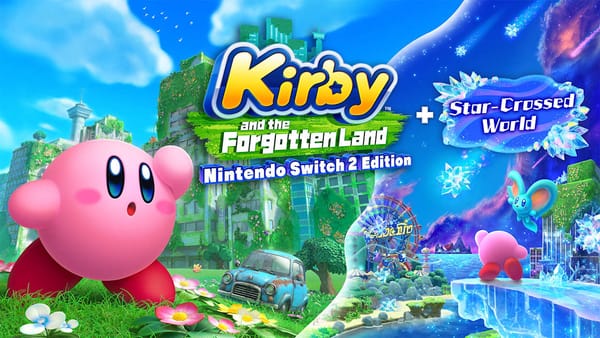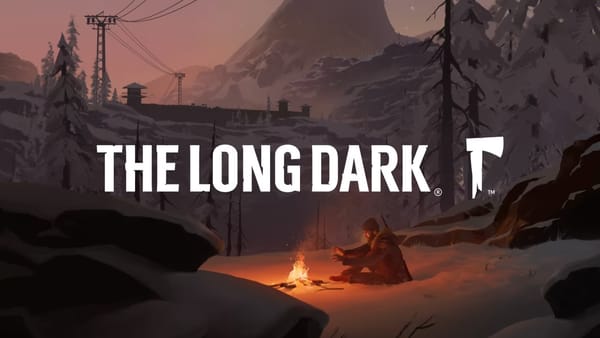Donkey Kong Bananza and reward density
How to beat the slog

Among the things I enjoy about reading is the immediacy of its pleasures. There is the pleasure of a well-crafted sentence, best exemplified by the gut-level reaction we often make to the opening line of a book. There is the pleasure of a chapter’s conclusion, whether it propels you onward by dangling an unresolved narrative tension or provides you with a satisfying conclusion to a plot thread. There’s the pleasure of the book as a whole, the way it begins with a single word and crescendos to a symphony of language, meaning, and thought. Then there’s the pleasure of a single word, perfectly chosen, lodged like a stained glass window amid carefully laid brickwork. A good book provides its pleasures from every direction.
Videogames, by contrast, often require a deal of busywork to get to the good stuff. Most games require a tutorial, a kind of grammar lesson before you can read the work at hand. Arguably, though, so do books. The opening of a novel teaches you whether you are reading magical realism, historical fiction, or something in between (looking at you, The Antidote). Thus, an opening chapter is a kind of tutorial on the book you are reading, setting your expectations and helping to shape how you approach the work. So when I speak of busywork in games, it’s less the introductory stuff that nearly every game needs you to experience before getting to the bulk of its experience, and more that the bulk of a game’s experience can itself be drudgery.
At 35, I think a lot about how I spend my time. I don’t yet have children, so when I do cross that threshold, I’d like you all to throw this essay back in my face so that I might laugh at my own folly, but the fact is, at this stage of life, I have to make value calls on what I choose to spend my time with versus not. There are certain nonnegotiables, of course, including eating, sleeping, and spending time with my spouse and dog. Running, at this point, is more or less a nonnegotiable for me, too, as it’s become, let’s say, somewhat essential to my mental health in the Age of American Decline. I wake up at 5:30 and go to bed around 10, so subtract work and the nonnegotiables, and I’m left with probably about three or so hours per day to dedicate to something else. That’s not bad, though! Three or so hours is probably someone’s dream. The problem is, with games, three hours doesn’t get you very far compared to three or so hours on books, music, or almost any other art form—and that’s before you factor in an artistic pursuit like writing.
(This will become about Donkey Kong at some point, I promise. The title is not an elaborate ruse to get you to be my de facto therapist. I already have one of those. Stay with me, stranger.)
Too many modern games waste your time. I’m trying to get into the original Death Stranding for the second time, and I’m having a difficult time sticking with it. I can see what it’s going for (and for those yelling at their screen at home, no, I have not yet reached the third chapter, and, yes, I do know that’s where it’s supposed to get good), but in the time it’s taking to get where it’s going, purposefully making the simple act of walking a belabored mechanical affair, I could’ve read a whole book. And that’s a game that has something interesting to say, mind you. Never mind the glut of open world titles we’re asked to play ad nauseam, none of them having the least bit of narrative depth besides retreading themes like “revenge consumes the avenger” or “AI might be a problem, don’t you think.” I could never play another AAA open world title in my life—and I’ll include the recent Zeldas in that mix, just to prove I’m serious—and I would not miss out on a single thing that would enrich my understanding of the world and my place within it. Games, more often than not, are enjoyable but not meaningful. All this cruft isn’t helping the matter.
I’m cranky about games, if you can’t tell, so when I finished Donkey Kong Bananza in a single week and didn’t even feel bad about it, you know it’s something special.
(See, I told you. Much like trying to get to the third chapter of Death Stranding, your faith has been rewarded. Or so I assume. I’m still on chapter two.)
Bananza broke through my gaming malaise in a big way, and in trying to think through why, besides the obvious polish and charm inherent to a Nintendo title of this caliber, I realized it had to do with respecting my goddamned time. Once you’re properly tutorialized, the game reveals itself to be an exercise in reward density. What I mean by this is that you can hardly turn a corner in Bananza without being rewarded in some fashion. It’s a style of gameplay Nintendo has been honing since the first Switch, with games like Bananza’s predecessor Super Mario Odyssey and the Breath of the Wild duology standing as additional examples of this design ethos.
Reward density, as I’ve come to think of it, is the cadence by which a game doles out its pleasures. Whatever it is that makes a game enjoyable, how often does a game elicit that feeling during gameplay, and how intensely? Let’s take another Switch 2 exclusive, Mario Kart World. Within it are two extremes of reward density. There’s the reward-rich Knockout Tour, which enthralls from start to finish with fever-pitch intensity, quite literally knocking you out of the experience when you are no longer being sufficiently rewarded (staying in the lead). Then there’s the relatively reward-poor open world portion, which, by design, wants to allow for a leisurely exploration, but is so sparsely populated with things to do, and so mediocre in its rewards for doing said things once you even find them, that it feels lax and worthless by comparison. The reward density of a game like Odyssey or Breath of the Wild, by contrast, ensures that at nearly every moment you are pursuing some meaningful reward, and that upon receiving that reward, you are then presented with several more paths by which to pursue even more rewards. Like a cliffhanger at the end of a chapter in a novel, games with high reward density propel you onward by spacing out their larger pleasures with a bevy of smaller pleasures along the way.
Bananza, though in many ways a less polished title than Odyssey or Breath of the Wild, is perhaps the most reward-dense game that Nintendo has ever produced. To play it is to be constantly showered with bananas, gold, banandium chips, fossils, and more. Its environments are made, quite literally, to be torn through, both in a mechanical sense, as DK rips apart their geometry with his fists, and in an experiential sense, as the player’s sense of time becomes lost to the loop of finding just one more thing. To design a game like Bananza is to go overboard with reward, creating a playspace that is so laden with pleasures that the player will, in all likelihood, tire of reward before they run out of it. A book can only be read from start to finish, but a game can be played in a multiplicity of ways. Games dense with reward know that they will need to be overstuffed to provide the sense that every direction leads to joy, and they must accept that the player will, in all likelihood, skip over much of it in their pursuit of a conclusion. What the player does consume will feel complete, however, as, in an interactive medium, you cannot miss what you did not choose to do.
Like DK, I was ravenous throughout Bananza’s runtime. Each new layer was richer than the last, the game reaching a fever pitch in its final stages that I refuse to spoil for you here, even as someone who generally thinks gaming spoiler culture is an excuse for not talking about the content of games critically enough. Suffice to say, Bananza is a game you will gorge upon and walk away from feeling full and happy. As I become less and less patient with overstuffed games, Bananza overwrote my anxieties about how I spend my time by overclocking the part of my brain that seeks reward. It is joyful at every turn, even if it isn’t meaningful when compared to something like a novel.
Which brings me back to books. Cards on the table: I’m thinking about games versus reading as very much a question of artistic worth, and to be perfectly frank, most games don’t stand a chance. This isn’t as much about high art versus low art as it is artistic expressions of meaning versus systems of pleasure without anything to say. Games can and do express deep meaning, but Bananza doesn’t. It’s a veritable blast, though, and I loved my time with it, but it only got past my defenses by being too fun, too fast for the internal voice that says “You’ll never regret reading a book, but you’ve often regretted playing a game” to gain any purchase in my mind.
If I’m going to play a game, I want it to be like Bananza. I want it to understand that it is, primarily, a joy machine, and if it doesn’t have anything deeper to say, to get to that joy as quickly and as frequently as possible. Otherwise, I should probably open a book and expand my mind. DK and Pauline were great traveling companions, but that trip is over, and fun as it was, life is both longer and shorter than you think, and we must fill our minds with things that sustain us. We all have to have a little fun now and again, though, and reward-dense games like Bananza are happy to oblige, with joy to be found just behind that very thin and breakable wall.





